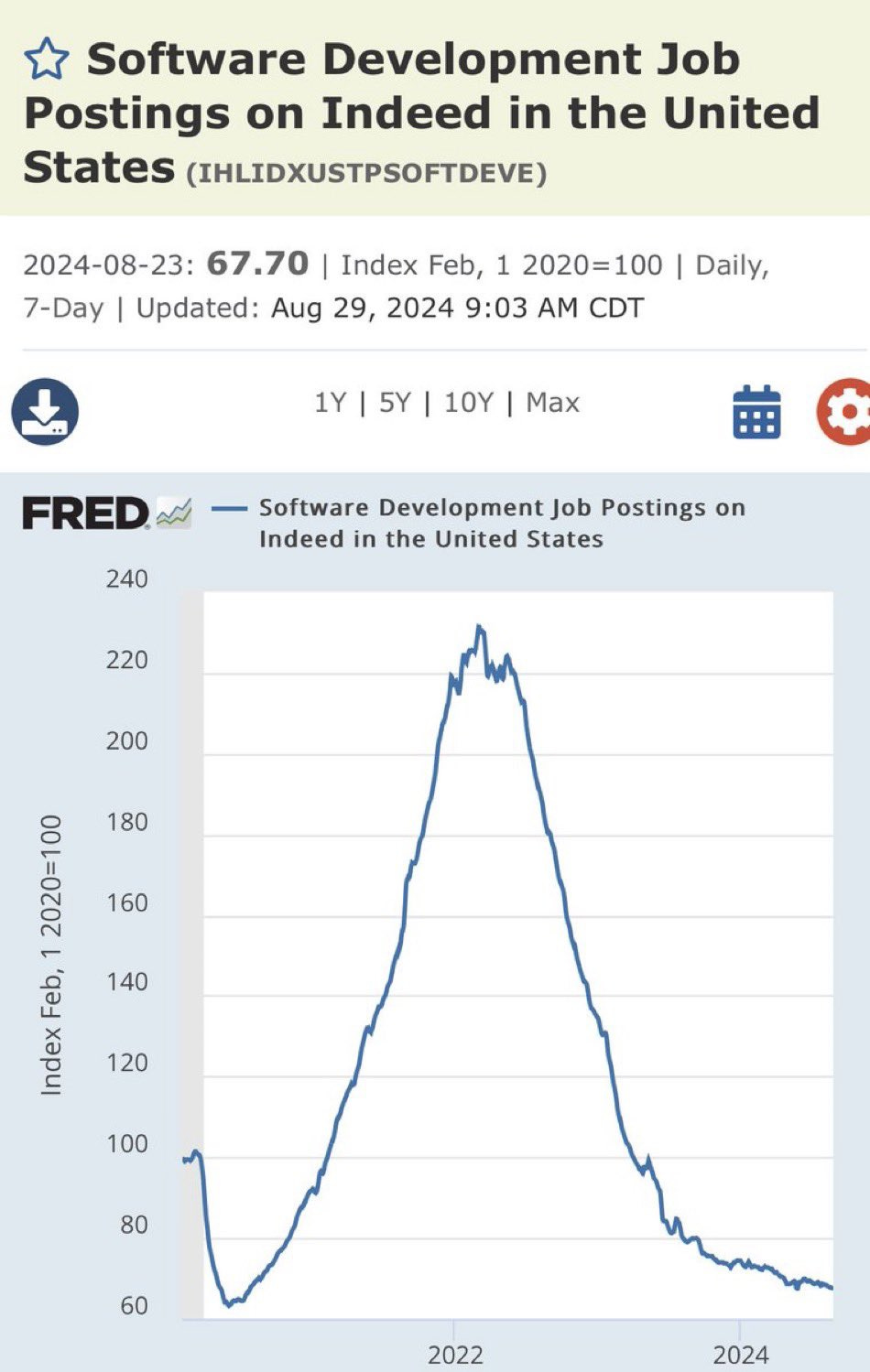By Rob Green.
As a Career Coach and two decades in the legal job market, the people that dismissively said "learn to code" to lawyers who felt under threat of their jobs, don't actually realise the damage the did to the pysche of a lot of professionals I work with.
To start with, lets look at the origin of the term “learn to code”.
The sarcasm of the term originated as a response to the economic struggles faced by workers in declining industries.
This phrase became a meme after it was used to mock the notion that coding could be a universal solution to job loss and economic hardship.
Background
Initial Usage: The phrase began circulating around 2012, coinciding with a broader narrative in the tech industry that encouraged people from various backgrounds to learn coding as a way to adapt to changing job markets. This advice was often delivered in a tone perceived as insensitive by those affected by layoffs in traditional industries.
Media Influence: Articles highlighting efforts to retrain coal miners in coding sparked resentment, as many interpreted these stories as the media's simplistic solution to complex economic issues. The phrase evolved into a meme, used both humorously and sarcastically, reflecting the disconnect between tech advocates and those struggling with job loss.
In summary, "learn to code" started as an earnest suggestion but morphed into a sarcastic retort reflecting societal tensions around job loss and economic change, particularly within the context of media layoffs and the tech industry's narratives.
And as the sarcasm levels ramped up, mainly by those in the Tech space towards anyone that wasn’t - this what happened to those who mocked….
The Future of law and tech’s influence.
I can tell you what will happen to the job market in the next 20 years.
Anyone lazy will be replaced.
Technology has always changed jobs, duties and industries.
If you want a solid example of how technology has grown an industry in terms of job growth, look at investment banking - this is an industry that is constantly at the forefront of tech advancements.
An industry that in the 1970’s was very small, 20 years later had grown 10x, now, probably closer 100x +
Summary Table of Job Growth
Investment Bank
1970s Employees. 1980s Employees. 1990s Employees
Goldman Sachs
1,000. 4,000. 20,000
Morgan Stanley
1,500 5,000 25,000
Merrill Lynch
6,000 16,000 60,000
Citigroup (Salomon)
1,500 5,000 50,000
The legal profession is notorious for its demanding workload and high stress levels, which often leaves little room for attorneys to pursue additional skills, such as coding.
While the integration of technology into law has prompted discussions about the necessity for lawyers to learn programming, the reality is that many attorneys are simply too busy and stressed to engage in such learning.
The Demands of Legal Practice
One of the primary reasons attorneys struggle to find time to learn coding is the **extensive hours** they are required to work.
Many lawyers routinely exceed 60 hours a week, with some even reaching up to 80 hours in high-pressure environments like large firms.
This relentless schedule is driven by large caseloads and the need to meet client expectations, which can be particularly high in legal matters that involve significant financial stakes or personal crises.
The pressure to perform well not only affects their work-life balance but also contributes to a pervasive culture of stress within the profession.
Stress and Mental Health
The stress associated with legal practice is compounded by several factors, including the emotional toll of working with clients who are often in distressing situations.
Attorneys frequently deal with clients facing life-altering events such as divorce or criminal charges, which can lead to vicarious trauma and burnout. As a result, many lawyers prioritise self-care and mental health over learning new skills.
The notion of adding coding to an already overwhelming list of responsibilities can be daunting and unappealing.
But exploring the use of AI Agents, may alleviate this pressure.
The Learning Curve
Even if attorneys were inclined to learn coding, the complexity and time commitment required for effective programming can be a barrier.
Coding is not merely about understanding syntax; it requires a deep understanding of logic, problem-solving, and often collaboration with others on projects.
For most lawyers, the idea of dedicating substantial time to mastering a skill that may not yield immediate benefits in their practice feels impractical.
Many argue that while some basic coding knowledge could be beneficial, it may not be the best use of their limited time compared to other skills like project management or negotiation techniques.
Alternative Solutions
Given these challenges, many legal professionals are turning towards automation tools and legal tech solutions that require less technical expertise but can still enhance efficiency.
For instance, software designed for case management or billing can alleviate some of the burdens without necessitating a deep dive into coding.
This approach allows attorneys to leverage technology without the steep learning curve associated with programming.
Conclusion
In summary, while there are clear advantages to having some coding knowledge in today's tech-driven legal landscape, the reality for many attorneys is that their workloads and stress levels make it difficult to prioritise learning this skill.
Instead, focusing on practical applications of technology that require minimal coding knowledge may provide a more feasible path forward for busy lawyers.
As legal professionals continue to navigate their demanding roles, finding ways to integrate technology without adding further stress will remain a critical consideration.
But AI will help you, it will assist you and alleviate some of the stress. You don’t need to build the tools, you just need to know how to use them properly.
Rob rob@thegrmgroup.com





